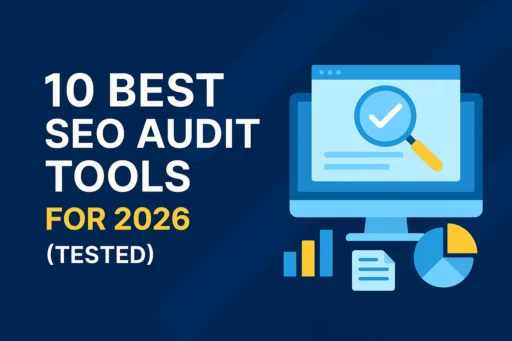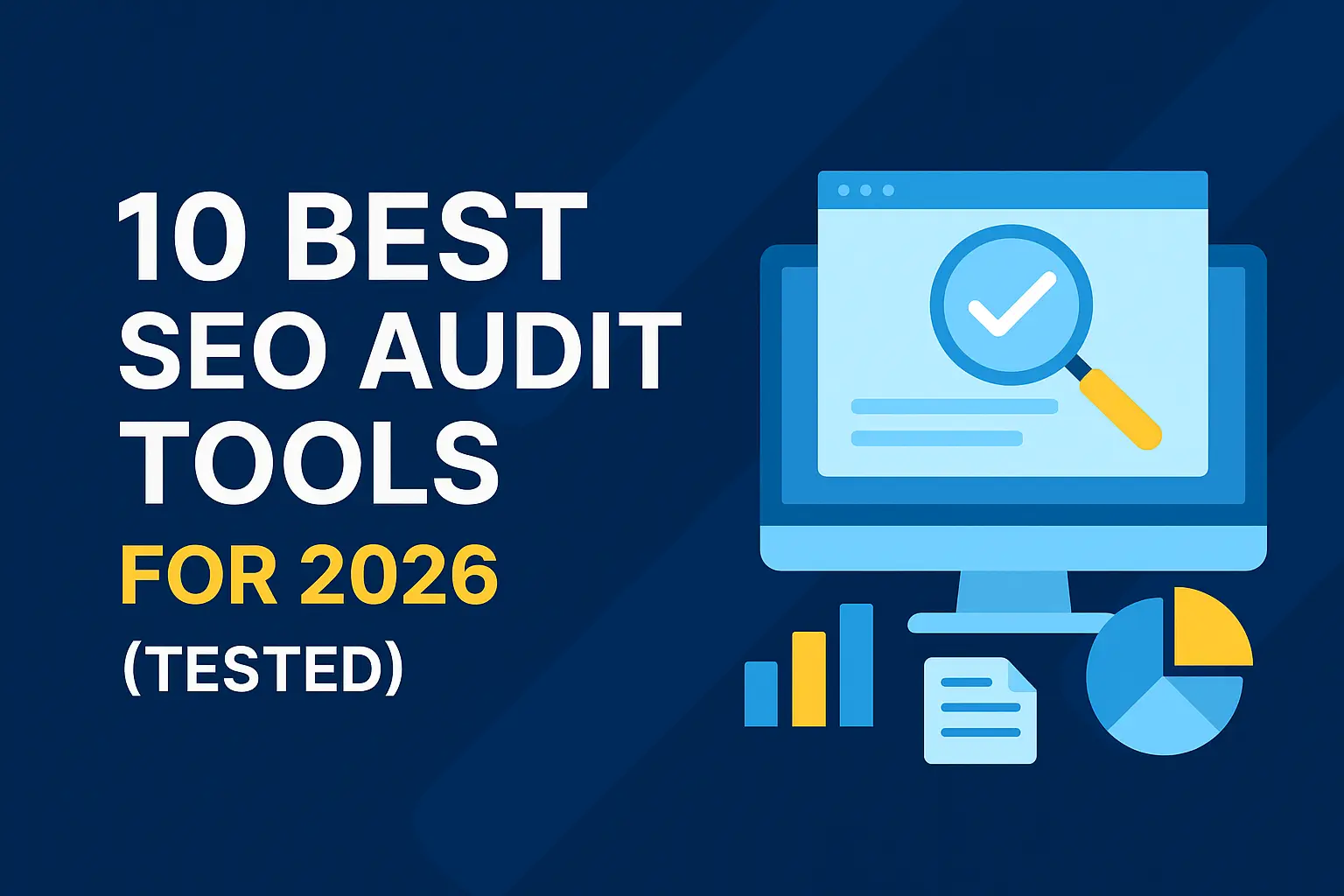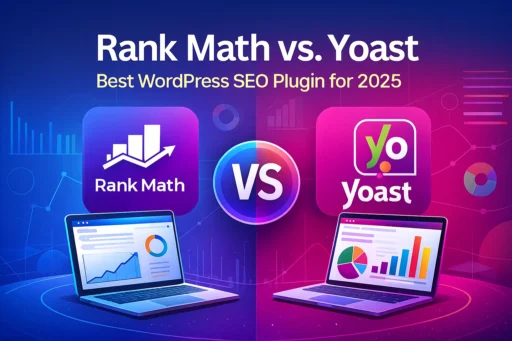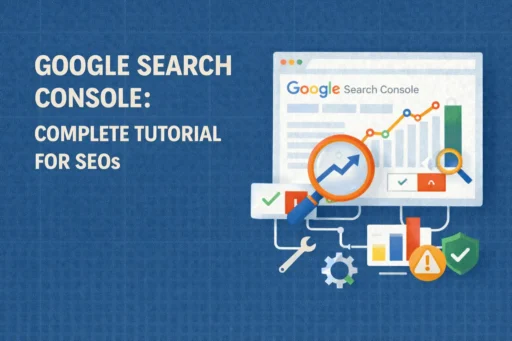SEO Audit Tools have become non-negotiable for businesses aiming to dominate search rankings in 2026. At Search Savvy, we’ve spent countless hours testing the leading SEO audit tools to help you identify technical issues, optimize site performance, and stay ahead of algorithm updates. Whether you’re managing a small business website or overseeing enterprise-level SEO campaigns, the right audit tool can make the difference between page one visibility and digital obscurity.
SEO Audit Tools for 2026 need to do more than just crawl your website-they must provide actionable insights, integrate with AI-driven search platforms, and help you understand how both traditional search engines and AI assistants discover your content. According to Search Savvy’s insights, regular site audits have helped our clients maintain top rankings and grow organic traffic by an average of 20% year over year.
How Do SEO Audit Tools Work?
SEO audit tools function by systematically crawling your website, similar to how search engine bots navigate and index pages. These sophisticated tools examine every aspect of your site’s technical infrastructure, from meta tags and internal linking to Core Web Vitals and mobile responsiveness. They identify over 140 technical SEO issues across categories like crawlability, indexability, site performance, and content quality.
The crawling process typically takes between 2-10 minutes for most websites, depending on the number of pages and the tool’s crawl speed. Once complete, the audit tool generates comprehensive reports that highlight critical issues, categorize them by severity, and provide step-by-step recommendations for fixing each problem. Modern audit tools also track your site’s health score over time, allowing you to measure the impact of your optimization efforts.
Why Are SEO Audit Tools Important in 2026?
SEO Audit Tools have evolved from nice-to-have resources to essential business assets in 2026. Search algorithms now update more frequently, with Google implementing changes that can significantly impact rankings overnight. Without regular audits, technical issues like broken links, duplicate content, or slow page speeds can silently erode your search visibility and cost you valuable organic traffic.
The rise of AI-powered search platforms like ChatGPT, Google’s AI Overviews, and Perplexity has added another layer of complexity. Your website must now be optimized not just for traditional search engines but also for AI systems that extract and synthesize information differently. At Search Savvy, we recommend running comprehensive site audits at least monthly, with weekly check-ins for high-traffic websites or during major content updates.
What Should You Look for in SEO Audit Tools?
SEO Audit Tools for 2026 should offer comprehensive crawling capabilities that scan all pages, links, images, and structured data. The best tools provide clear visualization of data through charts, graphs, and easy-to-understand dashboards that help non-technical team members grasp critical issues. Look for solutions that identify advanced problems like canonicalization errors, hreflang implementation issues, and JavaScript rendering problems.
Integration capabilities matter more than ever. Your audit tool should seamlessly connect with Google Search Console, Google Analytics, and other marketing platforms to provide a holistic view of your SEO performance. Automated reporting features save time and ensure stakeholders stay informed about site health without manual intervention. Finally, prioritize tools that offer actionable fix recommendations rather than just listing problems-knowing what’s wrong means nothing if you don’t know how to fix it.
The 10 Best SEO Audit Tools for 2026
1. Semrush Site Audit
SEO Audit Tools like Semrush’s Site Audit represent the gold standard for comprehensive technical analysis. This powerhouse tool identifies over 140 potential technical SEO issues across seven thematic report categories, including Core Web Vitals, site performance, internal linking, and HTTPS implementation. The intuitive dashboard provides an overall health score at a glance, making it easy to communicate site status to clients or team members.
Semrush’s Site Audit crawls up to 100 pages in approximately three minutes, delivering rapid results without sacrificing depth. One standout feature is the AI Search issue filtering, which highlights problems specifically affecting AI search visibility-a critical consideration for 2026. The tool also offers automated scheduling, allowing you to run weekly or monthly audits that track improvements over time.
Key Features:
- 140+ technical SEO checks
- Core Web Vitals monitoring
- AI Search visibility analysis
- Automated audit scheduling
- White-label reporting capabilities
Pricing: Free plan (100 pages/month), Pro plan at $139.95/month, Guru at $249.95/month, Business at $499.95/month
Best For: SEO professionals and agencies requiring comprehensive audits with robust reporting capabilities
Learn More: Semrush Site Audit
2. Ahrefs Site Audit
SEO Audit Tools for 2026 must handle massive websites efficiently, and Ahrefs Site Audit crawls up to 170,000 URLs per minute-making it one of the fastest options available. This desktop and cloud-based tool scans for over 170 common SEO problems, automatically grouping issues by major technical categories like indexability, site speed, duplicate content, and structured data validation.
Ahrefs excels at providing granular page-level insights. The Page Inspect feature consolidates all information about a URL in one place, including content fields, inlinks, outlinks, hreflang tags, and structured data markup. Real-time search capabilities let you compare code or text changes between crawls without reconfiguring settings, saving valuable time during iterative optimization sprints.
Key Features:
- Blazing fast crawl speed (170k URLs/minute)
- 170+ issue detection
- JavaScript rendering execution
- Google Search Console integration
- Mobile-first indexing simulation
- Looker Studio connectivity
Pricing: Lite plan at $129/month, Standard at $249/month, Advanced at $449/month, Enterprise starting at $999/month. Free trial available for $7 (7 days)
Best For: Technical SEO experts and enterprises managing large-scale websites requiring deep analytical capabilities
Learn More: Ahrefs Site Audit
3. SE Ranking Website Audit
SEO Audit Tools that deliver exceptional value without breaking the bank make SE Ranking a top choice for small to medium-sized businesses. This all-in-one platform offers comprehensive auditing capabilities starting at just $23.52/month, making enterprise-level features accessible to businesses of all sizes. The tool crawls over 1,000 pages in approximately 2 minutes, providing lightning-fast results with detailed recommendations.
SE Ranking’s Website Audit presents a quantified Health Score that shows exactly how many points each issue impacts your overall score. This transparency helps prioritize fixes that deliver the biggest SEO improvements first. The tool also includes a Marketing Plan feature that guides beginners through SEO best practices, making it ideal for teams still developing their technical expertise.
Key Features:
- Ultra-fast crawling (1000+ pages in 2 minutes)
- Quantified Health Score impact
- Core Web Vitals overview
- White-label reporting for agencies
- Marketing Plan guidance
- Competitor website auditing
Pricing: Flexible plans starting at $23.52/month based on ranking checks and keywords tracked. 14-day free trial available (no credit card required)
Best For: Small businesses, startups, and agencies seeking comprehensive features at budget-friendly prices
Learn More: SE Ranking Website Audit
4. Screaming Frog SEO Spider
SEO Audit Tools for 2026 don’t always need flashy interfaces to be effective-Screaming Frog proves that surgical precision matters most. This downloadable desktop application (available for Windows, macOS, and Linux) is beloved by technical SEO professionals for its unparalleled depth and customization options. Unlike cloud-based tools, Screaming Frog gives you complete control over crawl parameters, including speed, depth, and JavaScript rendering.
The tool excels at identifying advanced technical issues that other platforms might miss, including canonicalization problems, hreflang tag errors, and complex redirect chains. While the interface may seem less polished than some competitors, the wealth of data and powerful filtering capabilities make it indispensable for experienced SEOs tackling complex technical challenges.
Key Features:
- Comprehensive 500 URL free crawl
- Advanced technical issue detection
- Custom configuration options
- JavaScript rendering support
- API integrations (Google Analytics, Search Console)
- Scheduled crawl capabilities
Pricing: Free for up to 500 URLs, Paid license at $259/year for unlimited crawling
Best For: Technical SEO experts and developers requiring maximum control and deep technical analysis
Learn More: Screaming Frog SEO Spider
5. Sitebulb
SEO Audit Tools that make complex data digestible give Sitebulb a distinct competitive advantage. This desktop and cloud-based crawler stands out for its exceptional data visualization through interactive reports, charts, and heatmaps that transform technical SEO data into actionable insights. The visual approach makes it easier for teams to identify patterns, prioritize fixes, and communicate findings to non-technical stakeholders.
Sitebulb’s cloud server plans make it scalable for large teams and enterprise SEO audits, supporting massive crawls without overwhelming local computing resources. The tool’s hint system provides context-aware explanations for every issue detected, helping less experienced team members understand not just what’s wrong, but why it matters and how to fix it.
Key Features:
- Interactive visual reports and heatmaps
- Cloud and desktop options
- Context-aware hint system
- Batch URL analysis
- PDF report generation
- API connectivity
Pricing: Desktop plans start at $35/month, Cloud server plans from $245/month
Best For: Agencies and enterprises requiring visual reporting and scalable crawling for multiple large websites
Learn More: Sitebulb
6. Moz Pro
SEO Audit Tools for 2026 that combine power with user-friendliness make Moz Pro a favorite among marketers at all skill levels. This established platform is renowned for its intuitive interface and actionable insights across keyword research, site audits, and link analysis. Moz Pro’s site crawl feature examines technical errors, on-page issues, and domain characteristics while providing prioritized recommendations that guide users through implementation.
The tool’s integration capabilities shine through connections with platforms like Google Sheets, Trello, and Slack, enabling seamless workflow automation and team collaboration. Moz Pro’s Domain Authority metric has become an industry standard for evaluating site strength, providing valuable context for competitive analysis alongside audit findings.
Key Features:
- User-friendly site audit interface
- Proprietary Domain Authority metrics
- On-page optimization grader
- Link analysis and tracking
- Google Sheets export functionality
- Slack notifications integration
Pricing: Starter at $49/month, Standard at $99/month, Medium at $179/month, Large at $299/month. 30-day free trial available
Best For: Digital marketers and small to medium businesses seeking comprehensive SEO tools with excellent usability
Learn More: Moz Pro
7. Google Search Console
SEO Audit Tools don’t get more authoritative than Google Search Console-after all, it’s made by Google itself. This free tool provides direct insights into how Google’s crawler views your website, identifying indexing issues, mobile usability problems, and Core Web Vitals performance. The Coverage report shows exactly which pages Google has indexed and highlights any errors preventing proper indexing.
While Search Console lacks some advanced features found in paid tools, its direct connection to Google’s index makes it indispensable for every website owner. The Performance report reveals which queries drive traffic to your site, your average positions, and click-through rates-data that’s unavailable anywhere else. At Search Savvy, we always recommend starting with Search Console before investing in premium tools.
Key Features:
- Direct Google indexing data
- Core Web Vitals monitoring
- Mobile usability testing
- Security issue alerts
- Structured data validation
- URL inspection tool
Pricing: Completely free
Best For: Every website owner-beginners to experts-seeking authoritative data directly from Google
Learn More: Google Search Console
8. SEOptimer
SEO Audit Tools for 2026 that democratize professional SEO analysis make SEOptimer perfect for budget-conscious businesses. Starting at just $29/month, this tool delivers surprisingly robust insights across on-page SEO, usability, performance, social media presence, and security. The quick audit tool generates comprehensive scores with prioritized recommendations in seconds, making it ideal for rapid site assessments.
SEOptimer’s white-label reporting and embeddable audit tool features provide excellent value for small agencies and consultants. The ability to generate branded reports in 15 languages helps service providers deliver professional client deliverables without enterprise-level investment. While it may not match the depth of premium tools like Semrush or Ahrefs, SEOptimer punches well above its weight class.
Key Features:
- Quick comprehensive audits
- 60+ SEO analysis tools
- White-label reporting
- Embeddable audit widget
- Multi-language support (15 languages)
- API access
Pricing: DIY SEO at $29/month, White Label at $39/month, White Label with Embedding at $59/month
Best For: Small businesses, solopreneurs, and independent consultants seeking professional tools at affordable prices
Learn More: SEOptimer
9. Surfer SEO Audit
SEO Audit Tools for 2026 focused on content optimization give Surfer SEO a unique competitive position. Rather than just identifying technical issues, Surfer compares your pages against top-ranking competitors to uncover on-page SEO opportunities you’re missing. This competitive benchmarking approach helps you understand not just what’s broken, but what’s preventing you from outranking competitors.
The tool analyzes content depth, keyword usage, semantic relationships, and structural elements that contribute to ranking success. NLP-driven data enrichment provides insights into how search engines interpret your content’s topical relevance. Surfer’s recommendations are highly specific, telling you exactly how many times to use certain keywords, how long your content should be, and what related topics to cover.
Key Features:
- Competitive page comparison
- NLP-driven content analysis
- Real-time content grading
- Keyword density recommendations
- Topic coverage assessment
- Mobile and desktop crawler options
Pricing: Essential at $89/month, Scale at $129/month, Scale AI at $219/month, Enterprise (custom pricing)
Best For: Content teams and bloggers seeking to optimize existing content and identify ranking opportunities
Learn More: Surfer SEO
10. Morningscore
SEO Audit Tools that make optimization engaging transform Morningscore from standard software into an SEO learning platform. This gamified tool uses a mission-based system that makes technical SEO feel more like progressing through game levels than tackling tedious chores. Real-time insights track your SEO progress with visual feedback, celebrating improvements and maintaining momentum.
While Morningscore may not have the exhaustive datasets of industry giants, its beginner-friendly approach makes it fantastic for small businesses and non-technical users building their first optimization strategies. The 2025 AI roadmap promises significant enhancements to the platform’s AI-assisted writing helper and content research capabilities, positioning it for stronger competitive performance in 2026.
Key Features:
- Gamified SEO experience
- Mission-based improvement system
- Real-time progress tracking
- Keyword tracking and backlink analysis
- AI-assisted content research
- Intuitive beginner-friendly interface
Pricing: Starter plans begin around $99/month (pricing varies by features and keyword limits)
Best For: Small businesses, beginners, and teams seeking an engaging, educational approach to SEO
Learn More: Morningscore
How to Choose the Right SEO Audit Tool?
SEO Audit Tools selection depends primarily on your budget, technical expertise, and website complexity. Start by assessing how many pages your site contains and how frequently you need to run audits-some tools limit crawl volumes while others offer unlimited scanning. Consider whether you need white-label reporting for client deliverables or if internal-use-only reports suffice.
Your team’s technical skill level matters significantly. Tools like Screaming Frog deliver unmatched depth but require SEO expertise to interpret effectively, while platforms like Moz Pro and Morningscore prioritize user-friendliness with guided recommendations. Budget constraints naturally play a role, but remember that free tools like Google Search Console provide substantial value, especially when combined with strategic use of free tiers from premium platforms.
Finally, evaluate integration requirements. If you’re already invested in specific marketing platforms or analytics tools, choosing an audit solution that connects seamlessly can eliminate data silos and streamline workflows. At Search Savvy, we often recommend starting with Google Search Console and one free trial from a premium tool to identify your actual needs before committing to annual subscriptions.
What Are Common Technical SEO Issues These Tools Find?
SEO Audit Tools for 2026 consistently identify several critical technical issues that damage search performance. Broken links (404 errors) create frustrating user experiences and waste crawl budget, while duplicate content confuses search engines about which version to rank. Missing or duplicate meta titles and descriptions undermine click-through rates from search results, directly impacting organic traffic potential.
Site speed problems and poor Core Web Vitals scores have become increasingly important ranking factors, with Google’s algorithm heavily weighting user experience metrics. Mobile responsiveness issues can devastate rankings given Google’s mobile-first indexing approach. Crawlability problems-caused by robots.txt misconfigurations, XML sitemap errors, or broken internal linking-prevent search engines from discovering and indexing your content effectively.
Advanced issues include improper canonicalization that splits ranking signals across multiple URLs, hreflang implementation errors that serve incorrect language versions to international users, and structured data markup mistakes that prevent rich snippets from appearing in search results. Regular audits catch these problems before they significantly impact your visibility and organic traffic.
FAQ: SEO Audit Tools for 2026
Q1: How often should I run an SEO audit on my website?
SEO Audit Tools should be deployed monthly for most websites, with more frequent audits recommended for high-traffic sites or during major redesigns. At Search Savvy, we run weekly check-ins for enterprise clients experiencing rapid growth or frequent content updates. The frequency depends on how often your site changes-e-commerce sites adding products daily need more frequent audits than static informational websites. Set up automated audits through your chosen tool to maintain consistent monitoring without manual intervention.
Q2: Can free SEO audit tools provide sufficient insights?
SEO Audit Tools like Google Search Console, Screaming Frog (up to 500 URLs), and Ahrefs Webmaster Tools offer substantial free value that covers essential needs for small websites. These free options excel at identifying critical technical issues, indexing problems, and basic performance metrics. However, paid tools provide deeper competitive analysis, more comprehensive crawling, advanced visualizations, and better reporting capabilities that become invaluable as your website scales. Many businesses successfully start with free tools and upgrade as their needs grow.
Q3: What’s the difference between technical SEO audits and content audits?
SEO Audit Tools for 2026 primarily focus on technical SEO-the website infrastructure and coding elements that affect crawlability, indexability, and performance. Technical audits identify broken links, slow page speeds, mobile issues, and structured data problems. Content audits, by contrast, evaluate the quality, relevance, and optimization of your actual written content, examining factors like keyword targeting, content depth, topic coverage, and engagement metrics. Comprehensive SEO strategies require both technical and content audits working in tandem.
Q4: Do I need multiple SEO audit tools or just one?
SEO Audit Tools each have unique strengths, leading many professionals to use several complementary platforms. Google Search Console provides authoritative indexing data that no paid tool can replicate, while premium platforms like Semrush or Ahrefs offer competitive analysis and backlink insights Search Console lacks. At Search Savvy, our typical stack includes Google Search Console for foundational monitoring, one comprehensive paid tool (like SE Ranking or Semrush) for regular audits, and occasionally Screaming Frog for deep technical troubleshooting. Start with one tool and expand your toolkit as specific needs emerge.
Q5: How long does it take to fix issues found in an SEO audit?
SEO Audit Tools identify issues quickly, but resolution timelines vary dramatically based on problem severity and technical resources. Simple fixes like updating meta descriptions or fixing broken links take hours to days, while complex technical issues like site architecture overhauls or Core Web Vitals improvements might require weeks or months. Prioritize critical issues affecting indexability and crawlability first, as these have immediate ranking impacts. Many audit tools provide priority rankings to help sequence your optimization efforts efficiently. Most websites see measurable improvements within 2-4 weeks of addressing high-priority recommendations.
Q6: Will SEO audit tools guarantee higher rankings?
SEO Audit Tools provide the diagnostic insights and fix recommendations necessary for improved rankings, but they don’t guarantee specific positions. Think of audit tools as diagnostic equipment-they identify what’s wrong and prescribe treatments, but success depends on proper implementation of those recommendations. Rankings result from hundreds of factors including content quality, backlink profiles, user engagement, and competitive dynamics that extend beyond technical optimization. However, fixing critical technical issues consistently improves crawlability, indexability, and user experience, creating the foundation for better organic performance over time.
Conclusion
SEO Audit Tools for 2026 represent essential infrastructure for any serious digital marketing strategy. The landscape has evolved beyond simple crawlers to sophisticated platforms that integrate AI-driven insights, competitive intelligence, and comprehensive reporting capabilities. Whether you choose the enterprise power of Semrush, the technical depth of Screaming Frog, the affordability of SE Ranking, or the gamified experience of Morningscore, regular site audits form the foundation of sustainable organic growth.
At Search Savvy, we’ve seen firsthand how consistent technical optimization drives remarkable results-from 20% year-over-year traffic increases to competitive advantage in increasingly crowded search landscapes. The investment in quality audit tools pays dividends through improved user experiences, better search visibility, and ultimately, stronger business outcomes. Don’t wait until technical issues tank your rankings-implement regular audits today and build the technical foundation your SEO strategy deserves.
Start with Google Search Console to establish your baseline, explore free trials of premium platforms to identify your needs, and commit to monthly audits that keep your website in peak competitive form. The best SEO audit tool is the one you actually use consistently-choose wisely, audit regularly, and watch your organic presence flourish throughout 2026 and beyond.

